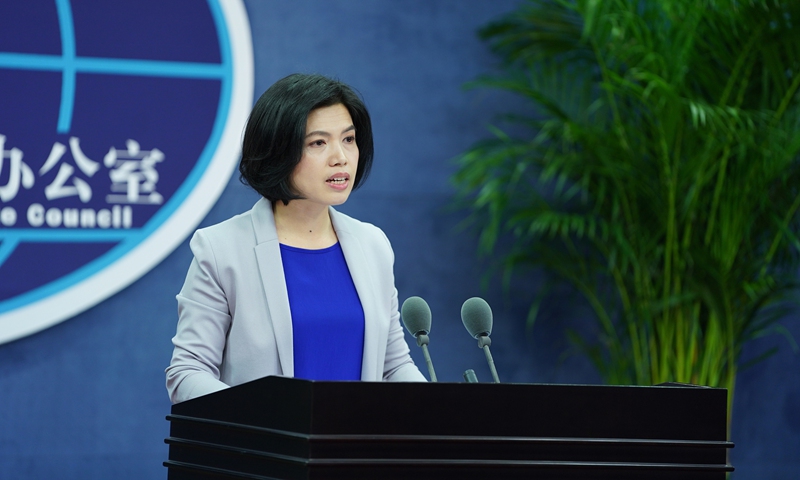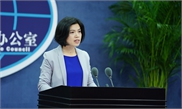DPP urged to remove unilateral barrier to cross-Straits exchanges as KMT embarks on mainland trip eyeing cooperation

Zhu fenglian Photo: VCG
The Taiwan Affairs Office of the State Council on Wednesday urged the Taiwan island's secessionist Democratic Progressive Party (DPP) authorities to take practical measures and remove unilateral barriers to cross-Taiwan Straits exchanges, while stressing that the Chinese mainland will continue to promote the resumption and expansion of cross-Straits exchanges and cooperation in various fields.
In addressing the highly anticipated matter of the resumption of normal cross-Straits traffic, Taiwan Affairs Office spokesperson Zhu Fenglian said at a press briefing Wednesday that the mainland is well prepared to resume normal direct flights across the Taiwan Straits, without any restrictions or obstacles.
On February 1, the mainland proposed that direct cross-Straits flights resume to 16 destinations from the current four, given the easing COVID-19 situation and rising public sentiment. Prior to the pandemic, direct cross-strait flights covered 51 destinations in the mainland and 10 destinations in Taiwan.
We hope that the Taiwan authorities can follow public opinion, take practical measures and stop using the epidemic as an excuse to block the resumption of normal direct flights across the Taiwan Straits, Zhu said.
Ferry services between Taiwan's outlying islands of Kinmen and Matsu and the mainland's Fujian Province have continued this week, but the services are restricted to residents of the two islands, mainland spouses of Taiwan residents, and students studying in the two islands, media reported.
"The epidemic on the mainland has been well put under control, and compatriots on both sides of the Straits have a strong desire for normal exchanges to resume," Zhu said. "Using the epidemic as an excuse to block cross-Straits exchanges runs counter to public opinion and is unpopular."
Zhu said that the mainland remains committed to the promotion of economic and cultural exchanges and cooperation across the Taiwan Straits and will continue to facilitate the import of Taiwan food products.
Zhu's remarks came at a time when members of Taiwan region's opposition Kuomintang (KMT) party are embarking on a trip on the mainland from Wednesday to February 17 to consolidate exchanges and cooperation. Zhu said on Monday that the mainland is willing to strengthen exchanges with the KMT and deepen exchanges and cooperation on the common political foundation of adhering to the 1992 Consensus and opposing Taiwan secession.
Wang Yingjin, director of the Center for Cross-Straits Relations Studies at the Renmin University of China, told the Global Times on Wednesday that the mainland is making great efforts for peaceful reunification, whether calling on the DPP not to put obstacles in the way of cross-Straits exchanges or discussing cross-Straits exchanges and cooperation with the KMT.
Cross-Straits people-to-people exchanges, dialogue and integrated development may be the focus of mainland efforts in 2023, but the first thing is to break the deadlock that the DPP authorities have created over the past three years with the epidemic as its shield.
According to Wang, both Tsai Ing-wen and the DPP are diving head first into an awkward dilemma. On one hand, their pro-secession stance requires them to reject normal cross-Straits exchanges. But they also fear a further loss of votes in the 2024 local elections in the face of public opinion on the island calling for peace and resumption of normal cross-Straits interaction.
As long as the DPP authorities recognize the 1992 Consensus, which embodies the one-China principle, and takes concrete actions to stop provocation seeking "independence" and collaborating with external forces against the mainland, cross-Straits dialogue and consultations can be resumed, Zhu said.



